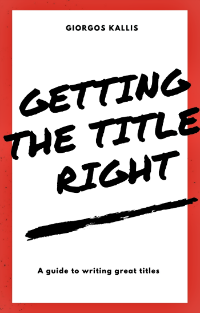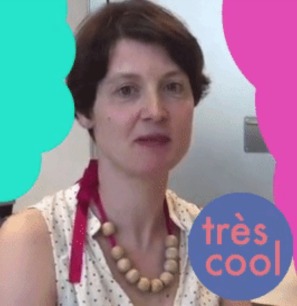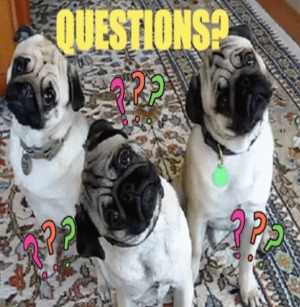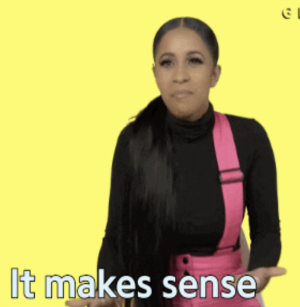Getting the title right
The title is the first thing you write. It is the moment you decide what is the purpose, focus and message of your article.
The title is also the first thing we will see of your published article. Whether we decide to click and read the abstract, or download the full article depends – at least, partly - on this first impression.
In this blogpost, I share some thoughts on what makes a good title, and how to come up with one. Even if you can´t find a great title for your article, what you can definitely do is avoid a bad one. I start with tips on what to avoid, proceed with properties and examples of good titles and finish with an illustration of how to get a decent title for a paper.
Five big ‘No’s.
A good title should be informative, argumentative and intriguing. And that’s all - any extra words that do not inform us or intrigue us about the argument, question, hypothesis or contribution of your article are redundant.
While it is difficult to come up with strong titles, you can start by avoiding bad ones!
Never do the following (disclosure - I’ve done all five of them):
-
Don't tell us in the title what is it that you are doing (‘a study of’, ‘lessons from’, ‘insights on’, ‘the case of’, ‘a comparison of’, ‘exploring’, ‘investigating’, ‘assessing’, ‘evaluating’, ‘measuring’). We know that this is a research paper. Go ahead and tell us what you found, not what you did.
-
Do not add dead words or words that are too general, such as: ‘beyond’, ‘from … to …’, ‘towards a’.
-
Avoid clichés and platitudes (‘exploring the contradictions of’, ‘integrating the’, ‘revealing the complexity of’). We know that research objects are complex (we wouldn’t study them if they were not), that causal relations in the real world are contradictory, or that integrating is better than separating.
-
Don´t tell us the method you are using or the approach you are following (‘a survey of’, ‘an econometric panel data analysis of’, ‘a case study of’, ‘an interdisciplinary perspective’). Exception: do it if the innovation of your paper is the method itself - but then tell us what your innovation is, not the name of your method.
-
Don’t try too hard to be witty. I’ve seen one too many papers that are ‘a tale of two’ .. islands, rivers, case-studies, ethnographies or surveys. I am sure there are also papers that are ‘gone with the wind’, or worst, ‘gone with the sea’.
Ashamed of past sins
Consider this title of an early paper of mine. “The EU water framework directive: measures and implications”.
Terrible. Boring as hell. I don’t want to read this paper and I am the one who wrote it.
What is wrong with this title?
First, it does not inform the reader about the purpose of my research or my argument. The reader only learns that I am analysing a legislative piece called the Water Framework Directive.
Second, ‘measures’ and ‘implications’ are descriptive, redundant terms. I am analysing a legislation, so of course I will describe its measures and talk about its implications.
The reader does not learn what is interesting or new about my analysis – no hint of what I found or what I will argue. I do not intrigue you to read the paper (unless you are a serious water nerd).
The three elements of a good title
What makes a great title?
Let me repeat.
A good title is informative: the core variables, phenomena or concepts you are contributing to, are there. The purpose of your paper is clear.
A better title is also argumentative: your (hypo)thesis, core finding, or politically-relevant conclusion is there. Ideally, this may include the process that connects your core variables, or the empirical pattern you demonstrate for your phenomenon.
A great title is also intriguing (without being cheesy): it attracts the attention of the reader, it promises something interesting and a new argument or explanation that the reader has not encountered before.
Most of us can write good titles. Titles that inform about the research we did (e.g. my “Social metabolism, ecological distribution conflicts, and valuation languages”). The challenge is to go the extra mile and write great titles – titles that let the reader know not only what you researched, but also what you found. Titles that intrigue the reader to read your paper.
Learn from the champs
Consider two of the most cited titles in environmental studies.
‘Limits to growth’. It can´t get better than that. In just three words, the title informs you what this work is about: growth and its limits. The thesis, novelty and contribution are clear: unlike what others claim, this piece will argue that there are limits to growth – unlike others studying the causes of growth, this work studies the limits to growth. And this makes it intriguing.
Or Garett Hardin’s four-worded ‘tragedy of the commons’. By reading the title you know what it is about: the commons. You also get the process, or hypothesis, Hardin is going to demonstrate and explain – the collapse of the commons.
The argument is intriguing: commons end up in tragedy. Written at the height of the Cold War, Hardin’s paper had an underlying political message: commons (shorthand for communism) end up in tragedy and there is a scientific reason why this is so. Like or dislike his conclusion, you are curious to read his paper and you want to engage with the argument, to support it or refute it.
My own In defence of degrowth tries something similar. It is short. It is politically provocative. And it is informative: the reader knows this paper is going to be about growth and degrowth.
But it lacks something that the limits or tragedy titles have: they make an argument. They have a thesis. My title does not say why or how I defend degrowth. (I could add a subtitle to capture this, but then some of the intrigue would be lost – see further on about subtitles and title length).
This is fine. We can´t be perfect. Rules can be broken. If your title is informative and intriguing enough, I think you can excuse yourself if you cannot capture also the thesis within the title.
Create some suspense with a question
Good research papers have good research questions. And good questions can be effective titles. Question titles lack an argument, but they intrigue with suspense.
Consider Daron Acemoglu’s and James Robinson’s ‘Why nations fail’. You sure want to know why nations fail!
The book deals with the study of so-called ‘state failure’ – corruption and the collapse of government institutions. Instead of using this academic terminology, it uses simple language that speaks to everyone, while hinting to academics what it is about.
Another good question-title my ex-classmate Nathan McClintock came up with is ‘Why farm the city?’
I’ve seen scores of recent articles on urban agriculture (or urban gardening). I would never read one called ‘Beyond existing explanations of urban agriculture: lessons and contradictions’. But I am intrigued to learn why so many people suddenly farm in cities.
Subtitles
Often a subtitle follows a main, shorter title. ´Why nations fail´ for example, is followed by ‘The origins of power, prosperity and poverty´. ‘Why farm the city’ is followed by the more esoteric ‘Theorizing urban agriculture through the lens of metabolic rift’.
A subtitle explains or provides context to a shorter main title, it sets the place and time under study or the method used, and adds substance if your main title is a catchy visual cue, verbal quote or open question.
If you can avoid a subtitle, and your title is powerful enough on its own, I would say avoid it. Hardin did. Adding the place, time or method of your research weakens the generality of your claim – the reader will find this information in the abstract or the paper anyway. Darwin did not have to explain that his study of the origin of species covered millions of years and was based on specimens collected in England and the Galapagos.
Too short or too long?
One reason I am sceptical of subtitles is because very long headings tend to be confusing. As a rule of thumb, a title, including the subtitle, should be between 5 and 15 words.
I am personally fan of ‘short is beautiful’. If you can say it in three or four words, go for it!
Why nations fail? Why farm the city? The tragedy of the commons. The origin of species. You don’t need to say more than that.
Fair enough: you may feel you are not Darwin yet. A longer title with many dead words diminishes your claim to contribution and makes you feel safer. But time to get out of your comfort zone and stake the relevance of your research. If it is not relevant, why did you do it? And why do you want us to read it?
Lively titles
A common title structure used in the social sciences is “Lively cue: informative title”.
The lively cue takes the form of a visual cue, a metaphor, a pun, a literary reference or a quote from something someone said.
As I wrote, if you have to try hard to be witty, then don’t. Do it only if the cue comes naturally to you and only if it is your thesis.
Consider Robert Putnam’s ‘Bowling alone: America's declining social capital’.
The thesis, and core finding of the book - that social bonds are weakening in the U.S. - is in the title for you to see: a person bowling alone. The subtitle informs you about the phenomenon studied, ‘social capital’ - and the process that is demonstrated empirically: the ‘decline’ of social capital. This is the perfect use of the cue: it really drives home the message of what this book is about, with a visual metaphor that speaks to all of us. The subtitle explains and asserts scientific credibility: make no mistake this is not a book about bowling.
Consider instead the title I chose with my friends Christos Zografos and Erik Gomez for our paper ‘To value or not to value? That is not the question’.
The paper deals with the monetary valuation of nature: should we try to calculate the worth of a river? Our Shakespearean hint points to the quasi-existential dimension of this dilemma among ecological economists, the audience of this particular article. ‘That is not the question’ summarises our conclusion: the terms of the debate are wrong.
Looking back at it, I find our title somewhat pompous. The rest of the article is an esoteric debate on methods of monetary valuation with arcane academic language. The comparison to a Shakespearean drama makes us good candidates to be covered by the Onion.
My advice: use wit with caution and only if you are 100% sure that you can pull it off. Like an airplane cockpit, journal articles are not the place to be funny - titles even less so. Be aware of the risk when you use literary or other references. You might seem to be exaggerating the importance of your own work (we are the Shakespeares of ecological economics) – not a good idea, more so if you are a starting researcher.
Same principles apply to quotes from interviews. Don’t do it unless the quote is your thesis. Consider a title like “‘Let them die alone’: homelessness and social exclusion in downtown New York” (I imagined this).
‘Let them die alone’ could be a phrase that an officer, businessman or an angry neighbour told you the researcher. If the core thesis of your article is that there is an intentional abandonment of homeless people, and as a result they die, then this quotation is impactful.
If however your article is about something different, say increasing numbers of homelessness and unfair housing policies, or if you touch only peripherally on questions of intentional neglect, then the phrase is just sensational and distractive.
If you end up using a quote, make sure that it is grammatically correct, and that its meaning is crystal clear to everyone. Using quotes in the title is risky if you are not a native speaker. Many of my students are not (I am not either). Translating quotes from interviews they took in Spanish or Greek often times do not make sense in English.
Let’s do this!
You know what your article is going to be about. It's time to baptise it! I have created a workbook with a three step process to help you create better titles. Click on the image below to access the workbook.
If you tried any of this and it worked or didn't work let me know in the comments below. And if you have other tips to share, please let us know!
















